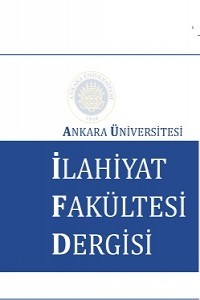Mevlânâ'nın Divān-ı Kebīr'de Kendi Şiiri ve Şiir Söylemesine Bakışı
Mevlânâ'nın Divān-ı Kebīr'de Kendi Şiiri ve Şiir Söylemesine Bakışı Mevlânâ Celâleddîn Muhammed Belhî (Rûmî), büyük Sufi ve mütefekkir, güzel ve heyecan verici şiirler söylemiş ve Mesnevi ve Divān-ı Kebīr olarak şiirsel eserler yaratmıştır. Mesnevi yüce fikirler, mistik ve ahlaki öğretileri içerir. Divān-ı Kebīr, onun iç duygularının tezahürüdür. Mevlânâ’nın şiir divanı coşkun gazeller, rubailer ve tercilerle (terkiblerle) doludur. Bu şiirler sık sık sema ile birleşirdi veya sema sırasında dile dökülürdü. Hatta bazen onun gönül denizinin dalgaları öyle büyük bir sel yaratırdı ki kafiye ve vezin gibi daracık kaplara sığmazdı. Mevlânâ kendi ifadelerine göre şair değildi, şiir söylemeye de merakı yoktu; sadece maşukunun emrini yerine getirmeye çalışırdı ki onu şiir söylemeye çağırırdı. Divān-ı Kebīr’de bazı beyitlere rastlıyoruz ki onlarda Mevlânâ kendi şiiri, şiir söylemesi veDivān’da kullandığı nazım biçimleri ile ilgili yorumlarını dile getirir.Bu görüşlerin incelenmesi Rumioloji bakış açısından önemlidir; bu yüzden bu makale, Mevlânâ'nın şiir söylemesi ve şiirleriyle ilgili konular hakkında Divān-ı Kebīr’deki görüşler ve bakış açıları incelemeye çalışmaktadır
Anahtar Kelimeler:
Mevlânâ, Divān-ı Kebīr, şiir ve şairlik, gazel, Terci
Rumi’s Perspective on His own Poetry and Poetic Styles in Divān-e Kabīr
Mawlana Jalāl al-Dīn Muḥammad Rūmī, the great Sufi scholar, has composed beautiful and rousing lyrics and created poetic works such as Mathnavī and Divān-e Kabīr. Mathnavī is repercussion of his sublime ideas which includes mystical and moral teachings while Divān-e Kabīr is the manifestation of his inner feelings. Rūmī’s Divān is full of passionate sonnets, quatrains and Trjyat which often accompanied Sama or expressed unconsciously during; sometimes even he was not able to express this amount of thoughts in the form of rhythm and rhyme. According to his own statements, he was not a poet and not interested in composing poem; he was only obedient to the beloved who has invited him to compose lyrics. In Divān-e Kabīr, we come across certain verses in which Rūmī has commented about his poetry writing and poetic forms of his Divān. Since it is important to be aware of the nature of these views from Rumiology perspective, the present paper tries to examine the opinions and viewpoints of Mavlānā about his own poem composing and deal with issues related to his poems in Divān-e Kabīr
Keywords:
Rūmī, Divān-e Kabīr, poetry and poetic, sonnets, Tarji,
- ISSN: 1301-0522
- Yayın Aralığı: Yılda 2 Sayı
- Başlangıç: 1952
- Yayıncı: ANKARA ÜNİVERSİTESİ > İLAHİYAT FAKÜLTESİ
